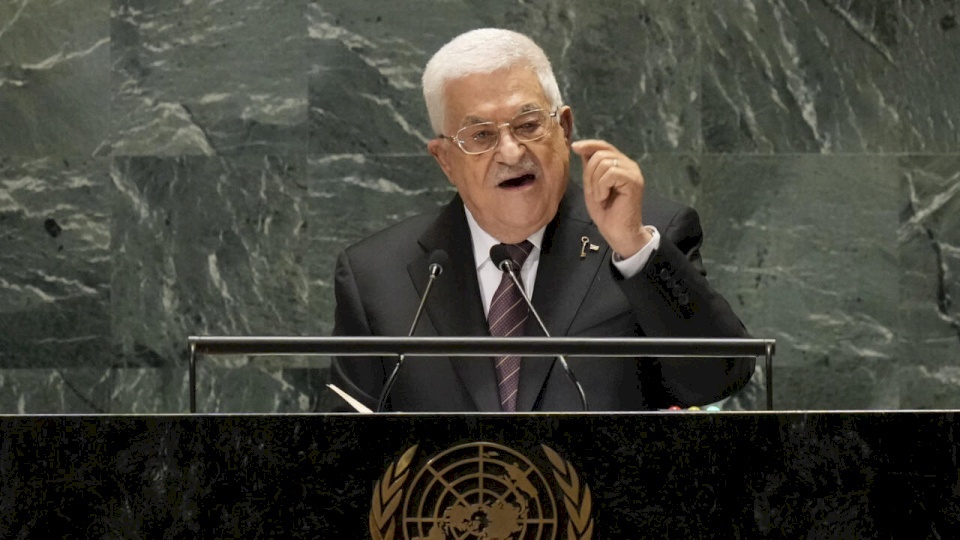
Options the Palestinian Authority May Resort to After the US Prevents Palestinian Officials from Attending UN Meetings
Following SadaNews - Several options may be pursued by the Palestinian leadership after the American decision to reject and cancel entry visas for officials in the Palestinian Authority and the PLO, preventing them from attending the upcoming UN General Assembly meeting in New York scheduled for September.
Among the scenarios is that the General Assembly may decide to relocate the meeting discussing the Palestinian issue, particularly the two-state solution file, from New York to Geneva, allowing the Palestinian delegation led by President Mahmoud Abbas to attend the meeting.
This step was implemented in 1988 when the United States refused to grant the late President Yasser Arafat a visa to enter its territory to deliver a speech at the United Nations headquarters in New York, in response to 'Arafat's' declaration of Palestinian independence from Algeria during the nineteenth session of the Palestinian National Council, and in reaction to the escalating intensity of the first Palestinian intifada, in which the PLO played a prominent role in its management.
If the meetings are indeed transferred to Geneva, will Israel then prevent the Palestinian leadership, including President Abbas, from leaving the West Bank, thereby obstructing their travel to the Swiss capital as a retaliatory escalation in parallel with the American escalation?
The Palestinian leadership could also make intensive contacts with Arab and friendly international countries, urging these countries to exert genuine and effective pressure on Washington to reverse its decision to cancel the entry visas for Palestinian officials.
Read also: Washington Cancels Visas for Palestinian Officials Ahead of UN General Assembly Meeting
Meanwhile, the Palestinian delegation led by President Abbas may attend next month's planned meeting remotely via video conferencing, such as "Zoom".
But how are these visas issued and what law governs them?
Visas are issued pursuant to an agreement between the United States - as the host country - and the United Nations, which obliges Washington to allow diplomats and members of government delegations to enter the country if they wish to go to the UN headquarters. However, the freedom of movement for diplomats can be restricted to a few buildings around the UN building.
An agreement dating back to 1947 between the United States and the United Nations stipulates that US authorities are to ensure that representatives of member states are not prevented from accessing the United Nations headquarters.
There has been a temporary postponement in issuing visas in the past by the United States. The UN statement added: "We engage in advance with the US mission regarding providing visas for delegations to attend upcoming meetings at the headquarters and coordinate with the mission on specific cases raised to us. We do this in this case."

High-level sources reveal to SadaNews: Washington seeks to hold a Gaza Reconstruction Conf...

The Jordanian and Israeli flags fly over the Baquoura Bridge on the border

Yedioth Ahronoth Reveals: An Informant for the Shabak Retrieved the Body of Oron Shaul fro...

How Israel Moved the 'Yellow Line' Deep into a Devastated Neighborhood in Gaza

In Pictures.. How Kushner Will Transform Gaza into a Promising Economic Center After Its R...

SadaNews Clarifies the Truth About a Report Attributed to the Washington Institute Regardi...

US Treasury Uncovers and Dismantles Secret Support Network for Hamas

